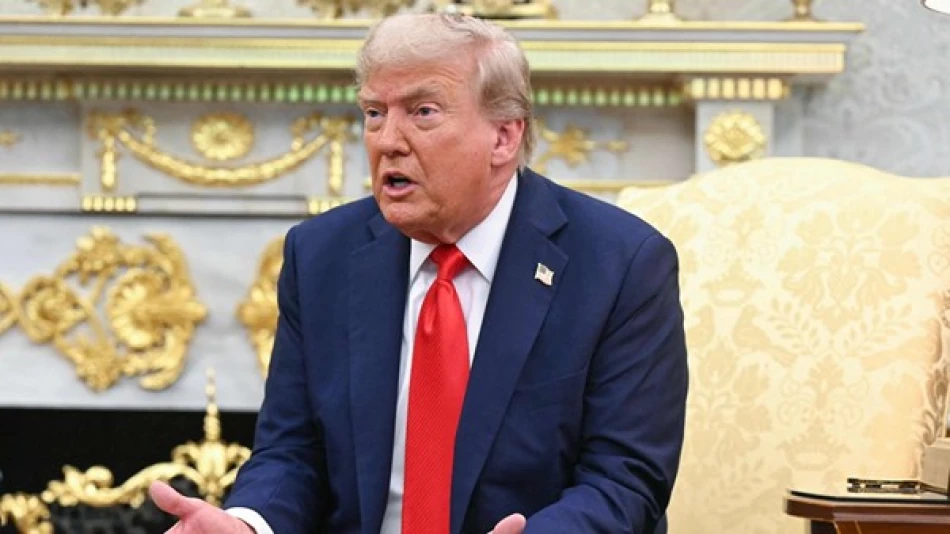
Trump Threatens to Deploy National Guard to Chicago
Trump Escalates Chicago Immigration Crackdown with "Apocalypse Now" Imagery and Pentagon Rebranding
President Donald Trump has intensified his confrontational approach toward immigration enforcement in Chicago, posting provocative "Apocalypse Now" imagery while simultaneously pushing to rebrand the Department of Defense as the "Department of War." The move signals a dramatic shift in federal rhetoric and potentially enforcement tactics in America's second-largest city, marking one of the most aggressive federal interventions in local immigration policy in recent memory.
From Cinema to Policy: Trump's Theatrical Immigration Strategy
Trump doubled down on his promises to deploy National Guard troops and immigration agents to Chicago by sharing a satirical image inspired by the Vietnam War film "Apocalypse Now." The meme depicted a fireball hovering over Chicago's skyline with approaching helicopters, accompanied by Trump's social media post: "I love the smell of deportations in the morning. Chicago is about to find out why it's called the Department of War."
This theatrical approach represents a significant escalation from traditional federal immigration enforcement messaging. Unlike previous administrations that typically couched such operations in bureaucratic language, Trump's cinematic references suggest a more militarized framing of domestic immigration policy.
The Pentagon Rebranding: Symbolism Meets Substance
On Friday, Trump signed an executive order seeking to rename the Department of Defense as the "Department of War" – a title the military held from 1789 to 1949. The timing is particularly striking, coming just months after Trump's campaign indicated interest in pursuing a Nobel Peace Prize.
Historical Context and Congressional Hurdles
The proposed name change requires Congressional approval, creating a potential legislative battleground. The original "War Department" was renamed in 1947 as part of post-World War II military reorganization, reflecting America's evolving role as a global superpower focused on defense rather than conquest. Reverting to the wartime designation could signal a fundamental shift in how the administration views military engagement.
Chicago as Ground Zero for Federal-Local Tensions
Chicago's selection as a primary target for enhanced immigration enforcement reflects broader political calculations. As a Democratic stronghold with sanctuary city policies, Chicago represents the kind of federal-local confrontation that has defined Trump's approach to urban governance.
The city's significant immigrant population and history of resisting federal immigration mandates make it an ideal stage for demonstrating federal authority. This strategy mirrors tactics used during Trump's first term, when federal agents were deployed to Portland and other cities during civil unrest.
Market and Political Implications
The aggressive rhetoric and military-style imagery could have several downstream effects. Defense contractors may see increased opportunities if the administration follows through on militarizing immigration enforcement. Meanwhile, Chicago's business community faces potential disruption from large-scale enforcement operations that could affect workforce stability.
For investors, the confrontational approach suggests continued volatility in immigration-sensitive sectors, from agriculture to hospitality, where workforce disruptions could impact operations and profitability.
A New Paradigm in Federal Enforcement
Trump's Chicago strategy represents more than tactical immigration policy – it signals a broader shift toward viewing domestic enforcement through a military lens. By combining cinematic imagery with institutional rebranding, the administration is crafting a narrative that frames immigration enforcement as warfare rather than law enforcement.
This approach breaks significantly from traditional federal-state cooperation models, potentially setting precedents for how future administrations might handle local resistance to federal mandates across various policy areas.
Most Viewed News

 Layla Al Mansoori
Layla Al Mansoori






